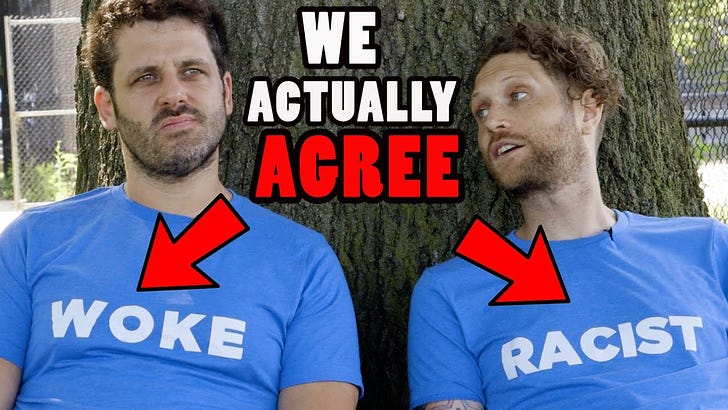Why Systemic Racism Is Making a Comeback
California lawmakers are once again trying to legalize discrimination so the government can offer preferential treatment on the basis of race and sex.
Californians cast their ballots in November 2020 on perhaps the most-watched state initiative in America that year: Proposition 16.
The referendum sought to repeal Proposition 209, a 1996 initiative based on the 1964 Civil Rights Act that amended California’s Constitution to prohibit government institutions from discriminating on the basis of race, sex, or ethnicity in their hiring practices.
“The state shall not discriminate against, or grant preferential treatment to, any individual or group, on the basis of race, sex, color, ethnicity, or national origin in the operation of public employment, public education, or public contracting,” Proposition 209 read.
Though the California Senate in June 2020 had voted to strike these words from California’s Constitution, Golden State voters overwhelmingly rejected the proposal (56–44%).
Following the vote, Yukong Zhao, the president of the Asian American Coalition for Education, called on California lawmakers to focus their attention on the state’s failing school system “instead of introducing racially divisive and discriminatory laws time and again.”
Zhao’s advice fell on deaf ears. Lawmakers in California are already at it again.
The Assembly has passed a bill (ACA 7) that would allow the governor “to issue waivers” to permit state funding for programs designed to benefit “specific groups based on race, color, ethnicity, national origin, or marginalized genders, sexes, or sexual orientations.”
As attorney Jack Brown observed for the Orange County Register, this “drives a freight train through [the] heart” of the state constitution’s provision that demands state institutions treat people equally.
Fortunately, the renewed effort to gut Proposition 209 has triggered a petition urging the California Senate to reject the legislation.
“If ACA 7 becomes law, present and future governors will be able to make as many exceptions as they like,” organizers noted, “so long as they can find ‘research’ that says it’s okay to discriminate on the basis of race, sex, color, ethnicity, or national origin, etc.”
It’s unclear whether leaders in the California Senate will take up the bill. But to understand why the legislation is such a threat, it’s worth taking a brief look at history.
Equality before the law is a pillar of Western civilization, one that stretches back to the funeral of Pericles, where Thucydides noted the Athenian Constitution was unique in affording “equal justice to all” regardless of “class considerations.”
More than 2,000 years later, the philosopher John Locke echoed this sentiment of equality before law in his Second Treatise of Government (1689), describing “a state … of equality, wherein all the power and jurisdiction is reciprocal.”
Locke’s philosophy underpinned the ideas and charters of America’s Founding Fathers, including Thomas Jefferson’s famous line in the Declaration of Independence that “all men are created equal, that they are endowed by their Creator with certain unalienable Rights.”
The basic idea of equality before the law, a tenet of classical liberalism, would later become the wellspring from which leaders of the abolitionist, suffragist, and civil rights movements would draw in their struggle for gender and racial equality in the 19th and 20th centuries.
Indeed, in his famous “I Have a Dream” speech, Rev. Martin Luther King Jr. appealed to the American value of equality in his plea for civil rights for black people.
“I have a dream that my four little children will one day live in a nation where they will not be judged by the color of their skin but by the content of their character,” he said.
California lawmakers are throwing equality aside in their fight for “equity,” a term employed by the bill’s sponsor, Assemblyman Corey Jackson.
There are a great many definitions out there for the term “inequity.” Some treat it as synonymous with injustice. Others describe it as a lack of fairness. But at its root, inequity simply means that some people in society have more than others, and social justice advocates argue that this renders certain groups “unequal.”
While there has always been a bit of fuzziness around the word “equality,” it’s not an exaggeration to say that the idea that all people should have equal rights is morphing into the idea that all outcomes must be equal.
These two concepts, that people should be treated equally by the state but also have the same outcomes, are incompatible, the economist F.A. Hayek observed a half-century ago.
“To make people equal a goal of governmental policy would force government to treat people very unequally indeed,” the Nobel laureate observed.
This is precisely what the California legislature is trying to do: make Californians more equal by treating them unequally.
This is how “equality” becomes evil.
This article originally appeared in The Washington Examiner.



